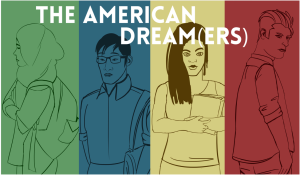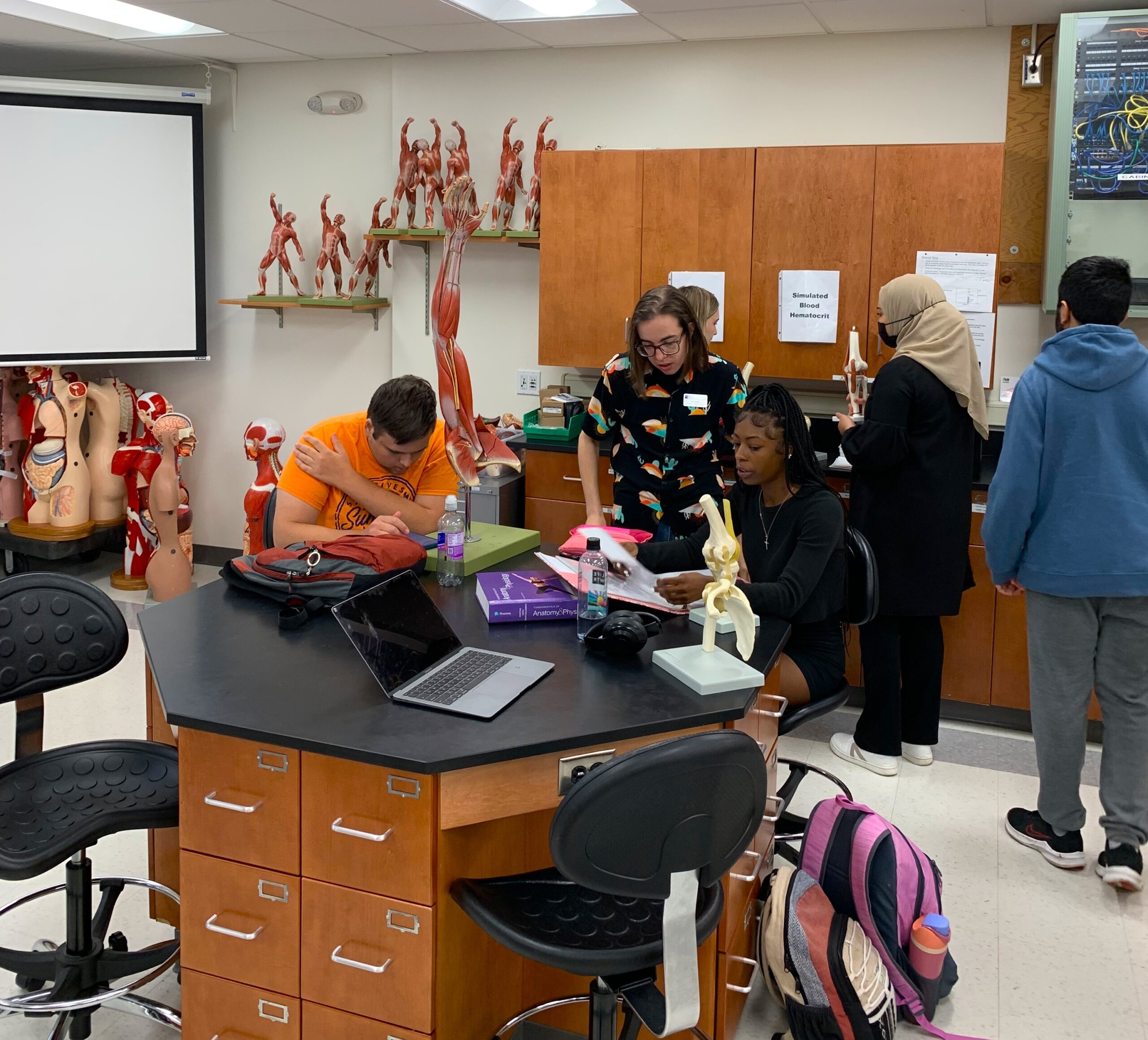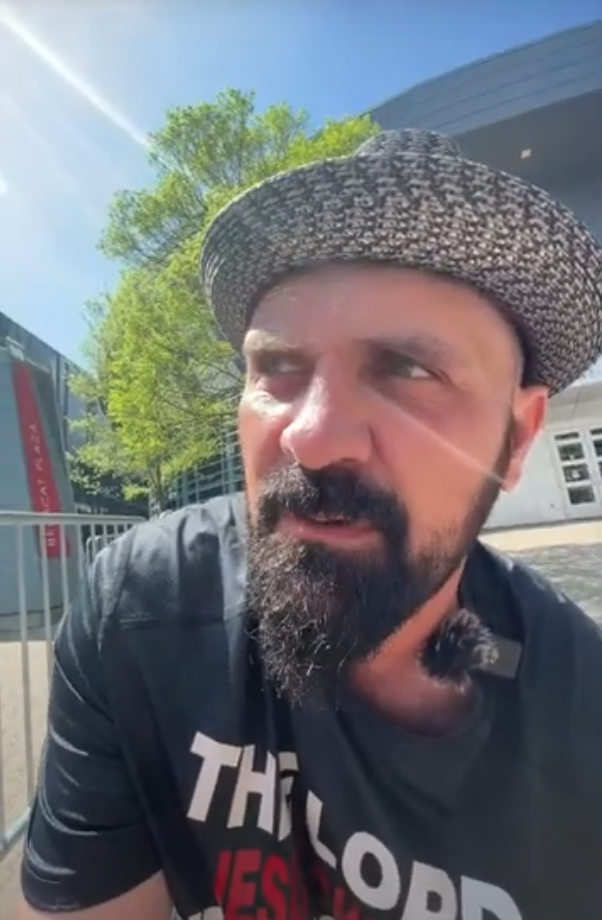Effects felt across campus according to teachers, students
By: Melissa Wilkinson
Editor-in-Chief
The White House announced on Sept. 5 that it would rescind the Deferred Action for Childhood Arrivals Act, also known as DACA. The act, established by the Obama administration, was an immigration policy that allowed some who entered the country as minors to apply for renewable two-year periods of deferred action from deportation and to be eligible for work permits. As of 2017, approximately 800,000 individuals have enrolled in the program, according to data from U.S. Citizenship and Immigration Services. These individuals are often referred to as Dreamers, a name taken from the Development, Relief and Education for Alien Minors (DREAM) Act, which has been introduced in the senate several times since 2001 but has failed to pass. President Donald Trump’s decision gives Congress six months to decide how to deal with Dreamers previous protected under DACA.
According to Meramec ESL program coordinator Lisa Wilkinson, the decision is an insulting blow to people who have invested their entire lives in the United States.
“First of all, they took a risk,” said Wilkinson. “There are a lot of people who could have that status but chose not to seek it because to seek it is to put yourself on a list. Why would you punish people for coming forward?”
Former Meramec student Elia Gonzalez, who applied for DACA when the program was still in its infancy, said she is concerned about the effects the decision will have on her family.
“It’s scary because I have a daughter now,” said Gonzalez. “What happens if Congress doesn’t reach an agreement? Who’s going to take care of her? It feels like we’re chess pieces being moved around and that shouldn’t happen to a person.”
Chancellor Jeff Pittman responded to the announcement in an email the following day. The message called for support of DACA students across all STLCC campuses and gave the phone numbers for counseling and support services.
“Students affected by the pending decision need our unbending support, our empathetic ear and a strong shoulder to lean on during this uncertain period,” said Pittman. “It’s the least we can do for those striving for a better life and a quality education.”
The email mentioned by name Forest Park student Areli Munoz-Reyes, a DACA advocate who is affected by the recent decision. Munoz-Reyes said in an interview that she resents the fact that President Donald Trump did not make the announcement himself.
“I knew it was coming, but it’s sad that he’s playing with human beings who are hardworking students and just want to contribute to the community,” said Munoz-Reyes. “We’re just trying to do our best and he’s not realizing that.”
Munoz-Reyes was brought to Missouri when she was eight years old. Although she is permitted to stay in the United States through DACA, she is still charged international student rates. This is due to Missouri house bill 390, passed in 2009, which prohibits Missouri’s public universities from giving financial aid to undocumented students. According to STLCC’s Tuition and Fees page, international students must pay $224.50 per credit hour, whereas Missouri residents are only charged $156.50 per credit hour. Munoz-Reyes also qualified for the A+ program, which pays STLCC tuition and fees, but was unable to take advantage of it due to her status. DACA students also do not have access to Pell Grants, according to
Lisa Wilkinson.
“It’s a huge injustice for people who have the least money to have to pay the most,” said Wilkinson.
Jeffrey Schneider, professor of English at Meramec, said he feels the policy of charging DACA students international rates is draconian but that STLCC’s response has been good.
Schneider is on the board of the Hispanic Arts Council and hosts a tutoring program that meets with students twice weekly. Most of these students are DACA students. Schneider said that he noticed changes in their attitudes beginning just after the 2016 election.
“They were frightened and insecure about what was going to happen to them,” said Schneider. “We have a student for instance who came here when she was 13 months old. In her mind, her home is the US. She’s worried constantly about what would happen if she and her parents were deported. Her siblings are citizens so they would be fine but they couldn’t stay here on their own.”
Kathryn Berger, who teaches ESL at a public high school in the city as well as Meramec, also said she noticed a difference in her students following the election.
“I’ve known a lot of them who are always remarkable for their resilience and their hopefulness and you could see that starting to turn since the election,” said Berger. “I’ve seen a lot of apathy. I’ve seen people who have just really changed.”
Vice Chancellor Anthony Cruz said he plans to personally reach out to the approximately 30 DACA students. Aside from the STLCC DACA Student Foundation Scholarship, Cruz said that there are other ways STLCC is helping DACA students, including a DACA renewal clinic held on the Forest Park campus Friday, Sept. 22. The clinic featured legal experts to answer questions and guide eligible students through the
renewal process.
“It’s important for us to point students to legal services,” said Cruz. “By March they really need to know where they stand and what options are available to them.”
Although she is grateful to her school for hosting the clinic, Munoz-Reyes said it’s not enough. What she wants to see is STLCC challenging the law for its DACA students.
“There would be no point if we get a career here and then they send us back to our country,” said Munoz-Reyes. “A lot of [DACA students] want to be nurses, lawyers, veterinarians, and we
need them.”
Gonzales said she would also like to see more community involvement like discussion groups.
“People need to hear our stories too,” said Gonzalez.
Munoz-Reyes said that, despite the barriers to her education she still loves Missouri and contributing to her community.
“For the students I would like them to get more involved,” said Munoz-Reyes. “We all have our differences but if we come together we can make a change.”











